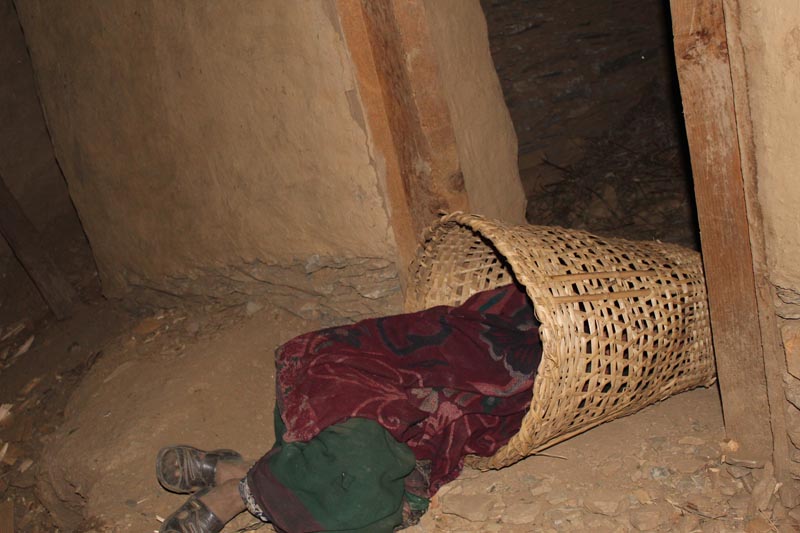Plastic-tents replace sheds; Far-west sees continuation of Chhaupadi
BAJURA: The death of Amma Bohora of Pandusen, Budhinanda Municipality-9 and her two sons in a chhaugoth (a small shed like structure used by females to take shelter during menstruation) sparked a fire that looked to wipe away the age-old practice of Chhaupadi. What followed was the coming-together of locals and authorities to fight Chhaupadi, a practice that reduced women to 'non-entities' during their menstruation.
Sheds were destroyed, awareness campaigns initiated in order to uproot the tradition of observing Chhaupadi in many areas.
However, the 'movement' has had negligible impact on the mindsets of the locals as the practice still moves forward, albeit in a different form- the menstrual-sheds having been replaced by plastic-tents now.
Jaula Rokaya is currently staying in a tent away from her home in Himali Rural Municipality-1, in pretty unsafe conditions, to pass a recurring phase of 'impurity'. She had been taking shelter in a shed during menstruation for the last 12 years before a group of local women started a campaign to destroy menstrual-sheds in a bid to eliminate the practice.
"The activists came and destroyed the goth. But our family members still want us to stay away from the house during menses and we have no option but to comply" shared Rokaya.
Lamenting about the problems faced by most women in the district, Rokaya shared that the initiative on destruction of the goths has had little or no impact as many women are still made to stay outside their homes during the period.
Likewise, many menstruating women in the district have now taken to living in make-do plastic tents, or even small-caves in the vicinity as locals cannot seem to let go of their deep-rooted beliefs.
"It's more inconvenient to live in tents, and caves are even worse," shares one Belati BK.
As many as seven rural municipalities of the district have been declared chhaugoth free, but the reality is far from near. The goths have been replaced by tents and caves, as mentioned earlier, continuing the tradition associating menstruation with impurity.
"The women reckon that the orthodox tradition has no rational footing, however, they conform to the associated practices due to societal pressures," says Keshari Rokaya, a local activist. Rokaya added that the women may now be facing more challenges in terms of dealing with related practices as the sheds have been replaced by feebler tents and relatively dangerous caves.
According to the Women and Children Welfare Office in Bajura, millions have been spent for eradication of Chhaupadi practice till date. The orthodox mentality prevalent among the residents in the region, however, has stood as a hindrance in eliminating the practice, the roots of which remain unshaken as women still suffer .






